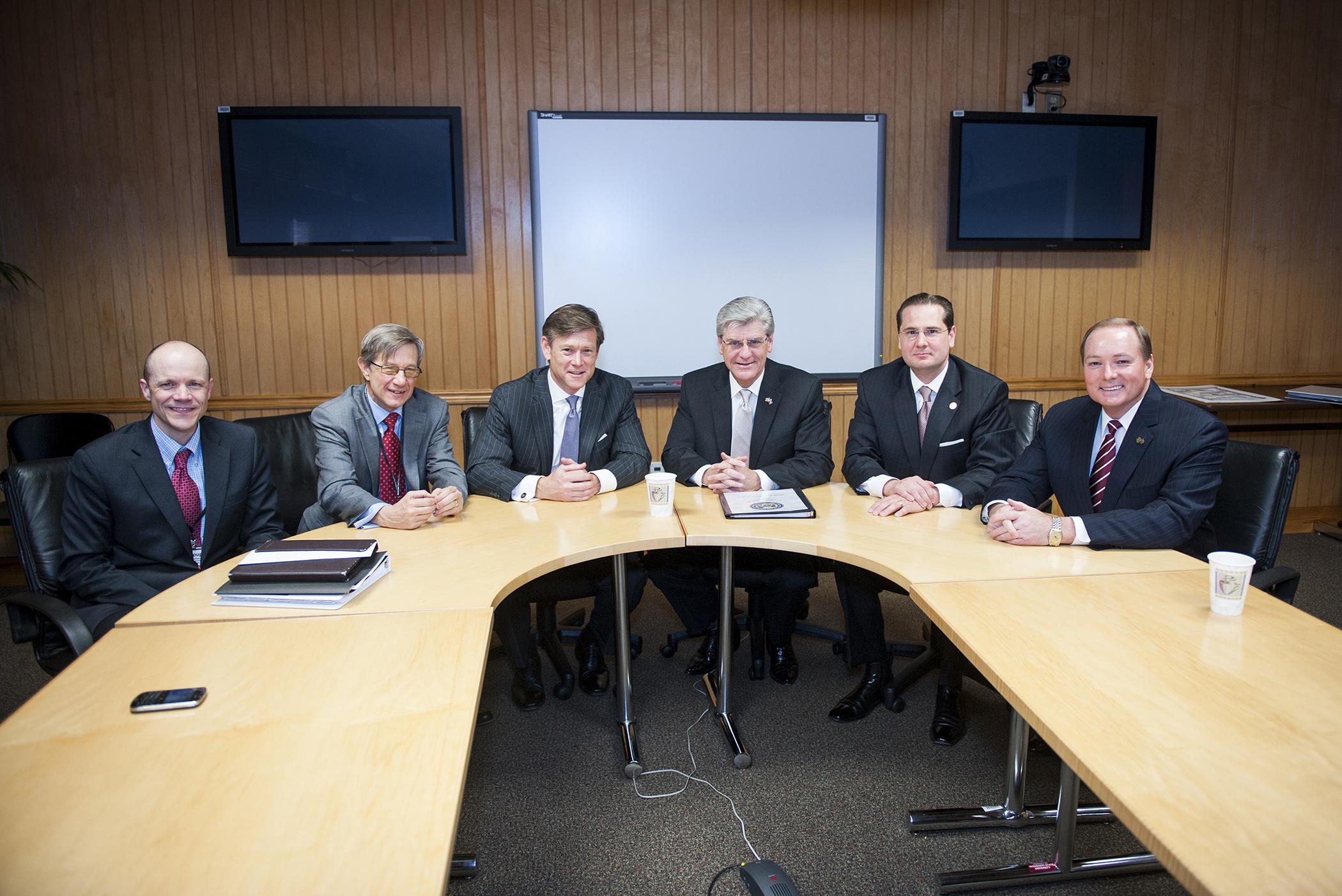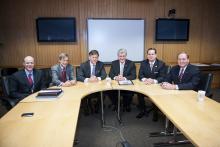Information Possibly Outdated
The information presented on this page was originally released on April 4, 2013. It may not be outdated, but please search our site for more current information. If you plan to quote or reference this information in a publication, please check with the Extension specialist or author before proceeding.
Event highlights partnerships that promote rural jobs
MISSISSIPPI STATE – The recent Manufacturing Summit at Mississippi State University highlighted the importance of communities working across county lines to bring jobs to rural regions of the state.
Earl Gohl, federal co-chairman of the Appalachian Regional Commission, was one of the participants in a panel discussion at the March 27 event at MSU’s Franklin Furniture Institute.
“People need to realize that their competition (for new industries) is not with the county next door; it is from across the ocean,” Gohl said.
Chris Masingill, federal co-chairman of the Delta Regional Authority, said communities need to develop strong partnerships with federal agencies and others to attract companies to their regions. Companies often follow other businesses to regions that meet their needs.
“It was a herd mentality that left the United States, and it is a herd mentality that is returning (businesses) to the Southern United States,” Masingill said.
Rachel Welborn, a program manager for the Southern Rural Development Center at MSU, said the willingness to collaborate with other agencies was key to landing a Rural Jobs and Innovation Accelerator Challenge grant in excess of $1 million over three years. MSU received notice of the grant award in August 2012.
“The timing for this Manufacturing Summit and our efforts on the grant was perfect,” Welborn said. “The summit brought together industry people representing workforce concerns, educators and economic developers to explore common issues.”
Welborn said in the initial stages of the grant, the SRDC helped identify industry clusters around the state. Some of those clusters involve furniture, automotive or agricultural businesses.
“Strengthening industrial clusters in a geographic region can involve purposeful recruiting of related businesses, expanding existing businesses or launching entrepreneurs to help fill industry gaps,” she said. “Companies in the supply chain benefit from reduced transportation costs and the time lag for delivering materials.”
Doug O’Brien, deputy undersecretary for rural development in the U.S. Department of Agriculture, took part in the summit. He referenced a recent comment by President Obama that a strong U.S. economy depends on a strong rural economy.
“We (USDA) took part in the summit to listen and learn from the participants and to celebrate the grant that Mississippi has received,” O’Brien said. “It is the largest of the 13 awarded across the country. One of our goals is to support collaboration among a variety of groups. Collaboration is hard and takes teamwork, generosity and a common vision.”
The Mississippi grant was jointly funded by the USDA, the Delta Regional Authority, the Appalachian Regional Commission and the U.S. Economic Development Administration.
O’Brien said the rural jobs accelerator grant allows the four agencies to pool their finances at a time when resources are scarce, and it streamlines the process of requesting funds to promote rural job development.
The grant has four priorities: strengthening communities, expanding business clusters, growing companies and developing entrepreneurs. The SRDC’s existing Stronger Economies Together, or SET, program complements the rural jobs accelerator initiative.
“SET has been in Mississippi for a couple of years, and it helps rural counties that don’t have the capacity or skill sets to conduct significant economic development planning. Some of the SET goals are similar to the rural jobs accelerator,” O’Brien said. “The work already underway with SET enabled Mississippi to compete for and receive the million-dollar grant.”
Along with the SRDC, MSU’s Rural Jobs Accelerator Coalition includes key personnel from the Center for Advanced Vehicular Systems Extension, the Franklin Furniture Institute, the National Strategic Planning and Analysis Research Center, the Office of Entrepreneurship and Technology Transfer and MSU’s Department of Agricultural Economics.









